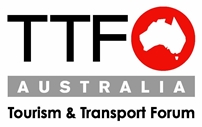TTF Media Release
09/10/2024
FEWER FLIGHT CANCELLATIONS IN STORE FOR TRAVELLERS THANKS TO SYDNEY AIRPORT REFORMS
The tourism industry has welcomed new reforms introduced into Federal Parliament today to ensure fewer flights are delayed or cancelled due to wild weather or other disruptions at Sydney Airport.
Tourism & Transport Forum (TTF) Australia CEO Margy Osmond said the legislation, which will establish a new ‘recovery period’ to temporarily increase hourly flights on the day of a disruption, is a great outcome for consumers.
“When severe storms hit or other unexpected disruptions take place at Sydney Airport, we often see travel chaos across the network with major impacts nationwide,” Ms Osmond said.
“These reforms will ensure fewer flights are cancelled and fewer passengers are left stranded, not just in Sydney but at airports across Australia.”
“The new rules will allow the backlog of flights to be cleared more quickly so more travellers will be able to reach their destination on time or return home swiftly to their loved ones.”
The legislation will pave the way for a new ‘recovery period’ to allow an additional five flights per hour at Sydney Airport for a maximum of two hours on the same day as a major disruption but will not extend past curfew or increase the overall number of daily flights allowed.
“We hope this legislation can pass the Senate before the end of the year so these much-needed reforms can take effect and passengers can benefit sooner rather than later,” Ms Osmond said.
The Tourism & Transport Forum also praised the changes to improve transparency around slot usage, including reforms to help prioritise regional services in NSW.
“Strengthening the compliance regime is a positive step that will increase transparency around slot usage and boost competition, helping improve the passenger experience,” Ms Osmond said.
She also welcomed the Federal Government’s consultation with industry on the Ombuds Scheme announced in the Aviation White Paper, as well as the consultation on the charter of passenger rights to follow.
ENDS
